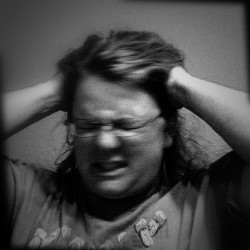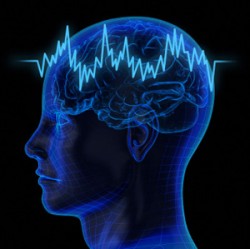Psychosis
According to Taber’s Medical Dictionary, a psychosis is a “mental disorder in which there is a severe loss of contact with reality.” It goes on to say that a psychosis can cause delusions, hallucinations, and various forms of bizarre behavior.
Psychosis is not a mental health disorder in itself. Rather, it is a symptom of a disorder or other medical conditions. Psychologically, there are several types of psychotic disorders which the most common being schizophrenia. Further, other mental health disorders such as depression or substance addiction can cause psychosis as a symptom.
What is the Difference Between Psychosis and a Psychological Disorder?
An episode of psychosis does not necessarily mean that a psychological disorder is present. Psychoses can occur in healthy patients, such as during periods of great stress, lack of sleep, or during bereavement. Psychoses can also occur due to physical health reasons which are unrelated to the psyche. For example, a brain tumor can cause psychosis.
With psychological psychoses, the symptoms are chronic or recurrent and cause significant impairment to the person’s life. The psychosis is purely due to mental health reasons and not because of other factors, such as drug abuse. Note, however, that drug abuse and health conditions can exacerbate a psychological psychosis. Psychosis is not a psychological disorder in itself but a symptom of many mental health disorders.
Signs of Psychosis:
Signs of psychosis can include:

Psychosis treatment is available.
- Delusions – untrue ideas or believes; they can be bizarre (related to ideas which are not feasible) or un-bizarre (related to ideas which are feasible but still untrue).
- Hallucinations – most commonly, psychotic hallucinations are audible. However, they can involve any of the senses.
- Disorganized thoughts or speech
People with a psychosis may engage in what is called “magical thinking,” meaning that they may believe that their thoughts or words can cause things to happen. They may have delusions of persecution or grandeur; they may think that the television newscaster is speaking to or about them. In short, the world in which the person with depression or anxiety is living may be very unpleasant, but it is real.
What Causes Psychosis?
Most experts believe that there is not one single factor that causes the development of a psychosis. Instead, a nervous system dysfunction can combine with other physical factors, such as an infection, an emotional stressor such as the loss of a loved one, financial difficulties, substance abuse or trauma to create the perfect storm of a psychotic episode.
Some of the many identified causes of psychosis include:
- Brain tumors
- Drug use or withdrawal
- Mental health disorders
- Brain infections
- Epileptic disorders
- Strokes
- Brain diseases including Parkinson’s disease
Diagnosing Psychosis:
 The presence of a psychosis can often be detected through interview. A scale for assessing the severity of psychosis called the Brief Psychiatric Rating Scale (BPRS) is used to analyze 18 components of the psychosis.
The presence of a psychosis can often be detected through interview. A scale for assessing the severity of psychosis called the Brief Psychiatric Rating Scale (BPRS) is used to analyze 18 components of the psychosis.
Diagnosing psychosis often is directly related to diagnosis of the underlying cause of the psychosis. If a non-psychological psychosis is suspected, then a doctor may perform blood tests, drug screening, brain scans, or other tests.
In regards to psychological psychoses, there are several types of psychotic disorders and many mental health disorders which can cause psychosis as a symptom. Each of these has its own distinct diagnostic criteria. However, what separates a normal psychosis from a psychological psychosis is that the psychosis will cause impairment to the person’s life. Further, psychological psychosis cannot be related to another problem or be due to the effects of a drug.
What Treatments are Available for Psychosis?
Unlike psychological disorders such as anxiety and depression, talk therapy is not a first step in the treatment of a psychosis. The foremost goal of treatment is to control the psychotic symptoms. Most typically, medications such as psychotropic drugs are used to achieve this. In severe cases or when the patient is at risk of harming his/herself or others, hospitalization may be necessary. When psychotic patients are unresponsive to medications, then electroconvulsive therapy has shown effective when the psychosis is linked to depression.
There is mounting evidence that behavior therapy can help patients deal with psychoses. However, therapy alone is rarely successful in controlling symptoms. It can help patients and their families learn coping techniques for dealing with the disorder. Depending on the actual cause of the psychosis, therapy may be effective for curing the underlying condition. Other forms of therapy, such as animal-assisted therapy, can help improve the quality of life and feelings of happiness in people with psychological psychoses.
Where Can I Find Additional Information on Psychosis?
In the United States, one very helpful source of information can be found at the website of the National Alliance on Mental Illness (http://www.nami.org/). You can read about treatment options, support groups and more as well as contact information for the NAMI in your state or local area. http://psychcentral.com/ has a wealth of material about both psychoses and psychological disorders.
Internationally, information provided by My Mental Health (http://www.mymentalhealth.ca/tabid/1091/default.aspx) includes links to resources throughout Europe, Great Britain, Australia and New Zealand.
Another wonderful source for families can be found at http://heretohelp.bc.ca/publications/factsheets/psychosis-recovery
References:
Kaplan, H.I., &Sadoc, B.J. (1996). Concise Textbook of Clinical Psychiatry. Baltimore, MD: Williams & Wilkins.
Morey, B., &Mueser, K.T. (2007). The Family Intervention Guide to Mental Illness: Recognizing the Symptoms & Getting Treatment. Oakland, CA: New Harbinger Publications, Inc.
Morrison, J. (2002). Straight Talk About Your Mental Health: Everything You Need to Know to Make Smart Decisions. New York: The Guilford Press.
Venes, D., & Thomas, C.L. (Eds.). (2001). Taber’s Cyclopedic Medical Dictionary (19th ed.).Philadelphia, PA: F.A. Davis Company.





